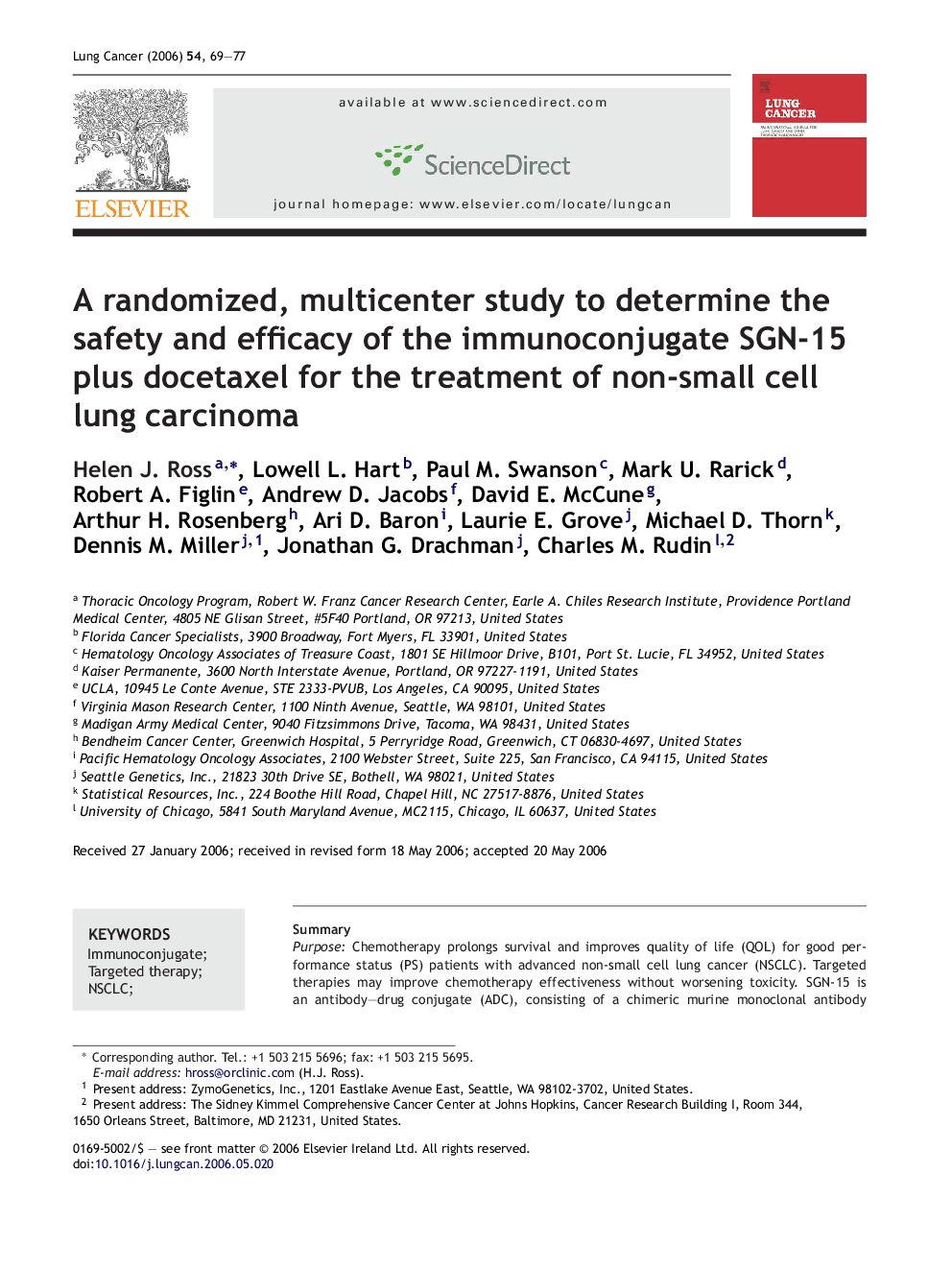| Article ID | Journal | Published Year | Pages | File Type |
|---|---|---|---|---|
| 2144034 | Lung Cancer | 2006 | 9 Pages |
SummaryPurposeChemotherapy prolongs survival and improves quality of life (QOL) for good performance status (PS) patients with advanced non-small cell lung cancer (NSCLC). Targeted therapies may improve chemotherapy effectiveness without worsening toxicity. SGN-15 is an antibody–drug conjugate (ADC), consisting of a chimeric murine monoclonal antibody recognizing the Lewis Y (Ley) antigen, conjugated to doxorubicin. Ley is an attractive target since it is expressed by most NSCLC. SGN-15 was active against Ley-positive tumors in early phase clinical trials and was synergistic with docetaxel in preclinical experiments. This Phase II, open-label study was conducted to confirm the activity of SGN-15 plus docetaxel in previously treated NSCLC patients.Experimental designSixty-two patients with recurrent or metastatic NSCLC expressing Ley, one or two prior chemotherapy regimens, and PS ≤ 2 were randomized 2:1 to receive SGN-15 200 mg/m2/week with docetaxel 35 mg/m2/week (Arm A) or docetaxel 35 mg/m2/week alone (Arm B) for 6 of 8 weeks. Intrapatient dose-escalation of SGN-15 to 350 mg/m2 was permitted in the second half of the study. Endpoints were survival, safety, efficacy, and quality of life.ResultsForty patients on Arm A and 19 on Arm B received at least one treatment. Patients on Arms A and B had median survivals of 31.4 and 25.3 weeks, 12-month survivals of 29% and 24%, and 18-month survivals of 18% and 8%, respectively. Toxicity was mild in both arms. QOL analyses favored Arm A.ConclusionsSGN-15 plus docetaxel is a well-tolerated and active second and third line treatment for NSCLC patients. Ongoing studies are exploring alternate schedules to maximize synergy between these agents.
